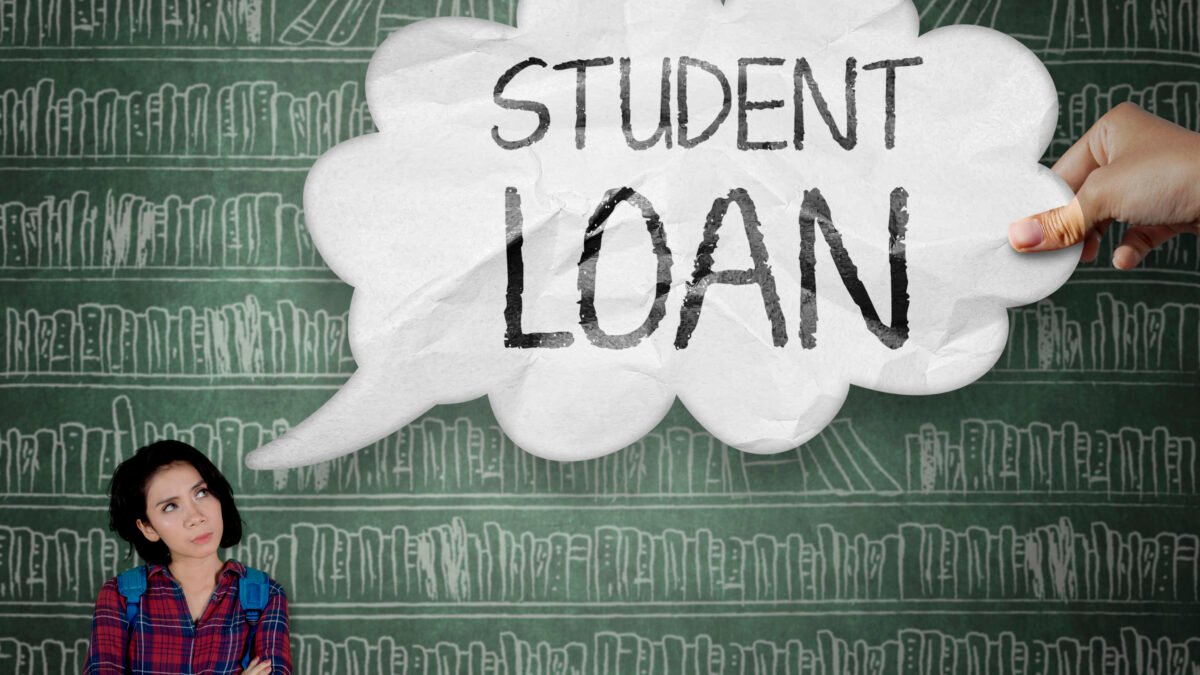
Downsizing: The Unlikely Doorway to a Fresh Start
November 6, 2025
Fast Cash Loans Online: Same Day Deposit and Instant Approval in the USA
November 11, 2025Can You File Bankruptcy on Student Loans in Pennsylvania?
When faced with overwhelming student loan debt, many individuals explore all available options for relief. One question that often arises is whether it’s possible to discharge student loans through bankruptcy. In Pennsylvania, as in other states, this is not a straightforward process. While bankruptcy can offer relief from many types of debt, student loans are treated differently due to the specific legal standards that must be met.
Understanding Bankruptcy and Student Loans
Bankruptcy is a legal process designed to provide individuals or businesses a fresh start by eliminating or restructuring debt. There are two main types of bankruptcy filings for individuals: Chapter 7 and Chapter 13.
- Chapter 7 (liquidation) allows the debtor to eliminate most unsecured debts after liquidating certain assets.
- Chapter 13 (reorganization) involves setting up a repayment plan that spans three to five years to repay all or part of the debt.
In both cases, student loans are generally not dischargeable unless you can prove that repaying them would cause “undue hardship,” a much higher standard than the one used for other types of debt.
Can You Discharge Student Loans in Bankruptcy?
Under normal circumstances, filing for bankruptcy does not eliminate student loan debt. This includes both federal and private student loans. However, there is a path available for those seeking relief from student loans through bankruptcy—though it is challenging and requires a specific legal process.
To discharge student loans through bankruptcy, you must file a separate adversary proceeding within your bankruptcy case. This is essentially a lawsuit within your bankruptcy case where you argue that your student loans should be discharged because repaying them would impose an undue hardship on you.
In Pennsylvania, the law follows similar federal guidelines and mandates the filing of this adversary proceeding. As a result, even if you file for bankruptcy, you cannot assume that your student loans will automatically be wiped out. Instead, you must meet the stringent requirements to show undue hardship.
The “Undue Hardship” Standard
The primary hurdle for student loan discharge in bankruptcy is the “undue hardship” test. This is where the difficulty lies, as the definition of undue hardship is not clear-cut and requires you to prove that repaying your student loans would create a dire financial situation.
Most courts in Pennsylvania and nationwide follow the Brunner Test, which was established by the Second Circuit Court of Appeals in the 1987 case Brunner v. New York State Higher Education Services Corporation. The test involves three main criteria:
- You cannot maintain a minimal standard of living if forced to repay the loans. This means that your current income, along with your living expenses, does not allow you to afford both basic living expenses and student loan payments. For example, if you have dependent children, significant medical expenses, or a low income, these factors may weigh in your favor.
- Your financial situation is likely to persist for a significant portion of the loan repayment period. The court will examine your income and expenses and decide whether your financial situation is temporary or long-term. If your inability to repay the loan is due to a temporary setback (such as a temporary illness or job loss), the court is unlikely to rule in your favor.
- You have made a good faith effort to repay the loans. This criterion requires that you have tried to make efforts to repay your student loans before filing for bankruptcy. If you have failed to take advantage of available repayment options (such as income-driven repayment plans, deferment, or forbearance), it may undermine your case for discharge.
To successfully meet these three criteria is challenging. Many individuals in Pennsylvania, as well as across the United States, are unsuccessful in discharging student loans because they cannot meet all the elements of the Brunner Test.
Filing for Bankruptcy in Pennsylvania: What You Need to Know
While the odds of discharging student loans in bankruptcy are low, it’s still possible under the right circumstances. To file for bankruptcy in Pennsylvania, you’ll need to follow the state’s specific rules and procedures.
1. File for Bankruptcy
The first step is to file a bankruptcy petition, either under Chapter 7 or Chapter 13. This will stop most collection efforts, such as wage garnishments or harassing calls from creditors, and provide you with temporary relief while you navigate the bankruptcy process.
2. Initiate an Adversary Proceeding
To discharge your student loans, you’ll need to initiate an adversary proceeding. This is a separate lawsuit that you file within the bankruptcy case. In this proceeding, you’ll argue that paying your student loans would impose an undue hardship and that they should therefore be discharged.
This step is required, as student loans are not automatically discharged simply by filing for bankruptcy. You’ll need to provide evidence of your financial situation and show why you meet the undue hardship criteria.
3. Gather Evidence
As part of the adversary proceeding, you’ll need to provide detailed financial information, including:
- Proof of your income (pay stubs, tax returns).
- Evidence of your living expenses (rent, utilities, food, medical costs).
- Documentation of any efforts you’ve made to repay the loan (such as using income-driven repayment plans or deferring payments).
You may also need to provide testimony about your future prospects. This could include proof of your education, employment history, and potential for earning a higher income in the future.
4. Court Hearing
Once the adversary proceeding is filed, the court will schedule a hearing. At the hearing, you’ll present your case to the judge. The lender or servicer may also present evidence to refute your claim. The judge will then make a determination on whether your student loans should be discharged based on the undue hardship criteria.
5. Wait for the Decision
After the hearing, the court will issue a decision. If you are successful, your student loans will be discharged. However, if the court does not find that you meet the undue hardship test, you will still be responsible for repaying your student loans.
What Happens if Student Loans Are Not Discharged?
If your student loans are not discharged, it does not mean that bankruptcy is useless. Filing for bankruptcy, even without discharging your student loans, can still provide relief in several ways:
- Eliminating Other Debts: Bankruptcy can discharge other unsecured debts like credit card debt, medical bills, or personal loans, which can free up your income to help you focus on repaying your student loans.
- Automatic Stay: When you file for bankruptcy, an automatic stay goes into effect, stopping most collection efforts. This means that creditors cannot garnish your wages or take other actions to collect debt, including attempting to collect on your student loans.
- Chapter 13 Repayment Plans: If you file for Chapter 13 bankruptcy, you may be able to include your student loans in your repayment plan. While they won’t be discharged, you may be able to pay them off over time along with other debts, often at a reduced rate.
Alternatives to Bankruptcy
Before pursuing bankruptcy, it’s important to explore other options for dealing with student loans. Some of these options may provide relief without the need to prove undue hardship in bankruptcy:
- Income-Driven Repayment Plans: Federal student loan borrowers may qualify for income-driven repayment plans that base monthly payments on income and family size. These plans can make your payments more manageable and may even lead to loan forgiveness after 20 to 25 years of qualifying payments.
- Deferment and Forbearance: If you’re experiencing temporary financial difficulties, you may be able to temporarily stop or reduce your student loan payments through deferment or forbearance. These options are available through both federal and private lenders.
- Student Loan Consolidation or Refinancing: Consolidating your loans can combine multiple student loans into a single loan with one monthly payment. Refinancing may help you lower your interest rates, though it’s important to note that refinancing federal loans will cause you to lose certain protections and benefits available under federal programs.
Final Thoughts
In Pennsylvania, as in most states, discharging student loans through bankruptcy is a difficult and rare outcome. You must prove that repaying the loans would cause undue hardship, which is a stringent legal standard. However, if your financial situation is dire, and you have made a good-faith effort to repay the loans, bankruptcy may provide a potential path to relief.
It’s always a good idea to consult with an experienced bankruptcy attorney who understands Pennsylvania’s bankruptcy laws and has experience handling student loan discharge cases. They can help you assess your situation, guide you through the legal process, and help you understand whether bankruptcy is the best option for you.
FAQ: Can You File Bankruptcy on Student Loans in Pennsylvania?
1. Can student loans be discharged in bankruptcy in Pennsylvania?
Student loans are generally not automatically discharged in bankruptcy. However, they may be discharged if you can prove “undue hardship” through an adversary proceeding in your bankruptcy case. This is a separate legal process where you must demonstrate that repaying your student loans would impose significant financial hardship.
2. What is an adversary proceeding?
An adversary proceeding is a lawsuit within your bankruptcy case that you must file to request the discharge of student loans. This proceeding is separate from the main bankruptcy case and is where you argue that repaying your student loans would create an undue hardship. The court will evaluate your financial situation and decide whether your student loans can be discharged.
3. What is the “undue hardship” standard?
The “undue hardship” standard is a legal test used to determine whether student loans can be discharged in bankruptcy. Most courts follow the Brunner Test, which requires you to prove three things:
- You cannot maintain a minimal standard of living if forced to repay the loans.
- Your financial situation is likely to persist for a significant portion of the loan repayment period.
- You have made a good-faith effort to repay the loans.
4. What do I need to prove in an adversary proceeding?
To succeed in an adversary proceeding, you must provide evidence of:
- Your income and expenses (e.g., pay stubs, tax returns).
- Your living situation and whether it is sustainable without repaying the student loans.
- Documentation of any attempts to repay the loans, such as using income-driven repayment plans or applying for deferment or forbearance.
5. How difficult is it to discharge student loans in bankruptcy?
Discharging student loans in bankruptcy is difficult. Most courts require that all three prongs of the Brunner Test be met. Many borrowers are unsuccessful because they cannot prove that their financial hardship will persist for a significant period of time or that they have made a good-faith effort to repay the loans.
6. What types of student loans are affected by bankruptcy?
Both federal and private student loans can be subject to discharge if you can prove undue hardship. However, the process and criteria are the same for both, and success is still rare.
7. What happens if my student loans are not discharged in bankruptcy?
If your student loans are not discharged, you will still be responsible for repaying them. However, filing for bankruptcy can still offer relief by:
- Discharging other unsecured debts (like credit cards and medical bills), which can free up your income to focus on repaying your student loans.
- Stopping creditor actions, such as wage garnishment or collection calls, through the automatic stay that goes into effect upon filing.
8. Can student loans be discharged under Chapter 7 bankruptcy?
Student loans can only be discharged under Chapter 7 bankruptcy if you can prove undue hardship through an adversary proceeding. Simply filing for Chapter 7 will not eliminate student loan debt unless you meet the “undue hardship” criteria.
9. Can student loans be discharged under Chapter 13 bankruptcy?
Student loans are generally not discharged under Chapter 13 bankruptcy unless you can prove undue hardship. However, Chapter 13 allows you to include your student loans in a repayment plan, where you may be able to pay them off over three to five years along with other debts.
10. What is the Chapter 13 repayment plan?
Under Chapter 13 bankruptcy, you propose a repayment plan to pay off your debts over three to five years. Student loans will not be discharged, but they may be included in the repayment plan. This can help reduce the burden of repaying your student loans if you are struggling financially.
11. What happens if I file for bankruptcy without discharging my student loans?
If your student loans are not discharged in bankruptcy, you will still be responsible for repaying them. However, bankruptcy can provide relief from other debts (like credit card bills or medical debt), and it will also stop most collection efforts temporarily through the automatic stay.
12. What are some alternatives to bankruptcy for dealing with student loans?
Before filing for bankruptcy, consider these alternatives:
- Income-driven repayment plans: These plans adjust your monthly payment based on your income and family size. After 20 to 25 years, any remaining balance may be forgiven.
- Deferment or forbearance: These options temporarily stop or reduce your student loan payments if you’re facing financial hardship.
- Loan consolidation or refinancing: Consolidating your loans combines them into one, and refinancing may lower your interest rate. However, refinancing federal loans results in losing federal protections.
13. Should I consult a bankruptcy lawyer in Pennsylvania?
Yes, consulting a bankruptcy lawyer is strongly recommended, especially if you’re considering filing an adversary proceeding to discharge your student loans. An experienced attorney can help you navigate the complex legal process, assess your situation, and provide guidance on the best course of action.
14. How do I file an adversary proceeding in Pennsylvania?
To file an adversary proceeding, you will need to:
- File for bankruptcy under Chapter 7 or Chapter 13.
- After filing, initiate the adversary proceeding by filing a complaint with the bankruptcy court.
- Provide evidence of your financial hardship and inability to repay your student loans.
Your bankruptcy attorney will guide you through this process and help you prepare for the court hearing.
15. Can bankruptcy stop wage garnishment for student loans in Pennsylvania?
Yes, filing for bankruptcy triggers the automatic stay, which stops most collection actions, including wage garnishment. If you are facing wage garnishment due to unpaid student loans, bankruptcy will temporarily halt this action while your case is processed.
Read More:




